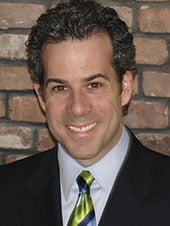Resolve to Focus on Behavior and to Think Long Term

Perhaps the big takeaway message for those trying to lose weight AND keep it off is this: Do not make changes in your behavior that you are not prepared to maintain for the rest of your life. Notice that I’m focusing on behavior, not losing weight. Consider that you do not actually try to lose weight. You try to change certain behaviors that you believe will eventually lead to weight loss. Weight loss is the desired outcome of a number of changes in behavior, some involving what you eat, some involving how you eat, and others involving your level of activity. It is critical to keep your focus on your behavior, not the scale. That same research also indicates that the body fights efforts to keep weight off for many years after the initial weight loss…maybe even for the rest of your life. You’re going to experience hunger. You are going to have cravings. Your body is going to keep fighting. Therefore, you are going to need to keep fighting.
We also know that despite all of this new research, reducing your intake of calories and burning off more of them remain two of the pillars of weight loss success. Your strategy to lose weight and keep it off must incorporate those two factors. With all of this information in mind, you can see why it’s silly to try to discover “the best diet.” First of all, “diets” are short-term interventions that you certainly know by now will not work. Second, we illustrated that whatever behavior changes you make, you would need to keep them going for many, many years. It’s simply not possible for one set of behavior changes to work for everyone.
It really comes down to figuring out what the best strategies are for you to reduce your calorie intake and to burn off more of them for many years to come. This is something you should give a great deal of thought. I know its January, but avoid jumping on the first idea that all of your buddies are considering. Now that you have read this article (and others), you probably have a lot more information that they have. Perhaps you can share this information with your friends who also want to lose weight and you can all put your collective heads together and come up with some strategies for one another. I have some suggestions.
Consider that you do not have to get it 100% right on day one and you probably should start small and try to build a pattern of success. Try to hit singles, not home runs. For example: If you decide that cutting carbs is going to be one of your strategies, start by trying to cut your carbohydrate intake by 10% for the first few weeks and work your way up to 50% or whatever your long-term goal will be. If you start by going no-carb on day one, I can introduce you to 100’s of people that were back to carbohydrate-rich diets and total weight regain by week four. Similarly, if increasing exercise is one of your goals, consider focusing on the number of days per week that you exercise, not how many calories you burn on the treadmill. Build a pattern of success. Over the weeks, try to increase your time and make it a point to find types of exercise that you enjoy…not necessarily the ones that burn the most calories, but rather the ones you believe that you can stick with over the long-term.
Also, consider making changes in your eating behavior rather than just in your diet. In other words, focus on how you eat not just what you eat. If, for example, you consume a great deal of calories by impulsively picking at food throughout the day, a good goal would be to eat only three meals and one snack per day and to avoid eating at other times. Here are some other suggestions: always go to the supermarket with a list and avoid purchasing anything not on the list; keep fruits and vegetables out on the counter for snacking; drink more water especially if you’re not certain if you are hungry or thirsty. You get the idea.
If you think about it, you may know all of this already. If you are fortunate to know someone who has lost over 25 pounds and kept it off for many years, I would bet that this person has made some permanent, dramatic changes in his habits. He’s a vegetarian. She exercises five days a week, every week. He doesn’t eat dessert anymore. She doesn’t drink anything with sugar. In other words, she’s not on a diet and it’s not with a short-term goal weight in mind. Her approach to food, eating and activity is fundamentally and permanently changed. That’s the goal.
In summary, think long-term. All signs point to the need for a consistent, sustained battle for long-term weight loss success. Take your time and discover some small but significant modifications you can make in your diet, eating behavior and activity level and try to build on them week by week. The ultimate goal is to make changes that can last year after year. Now that’s a winning New Year’s resolution.


summerset 5,265
Posted
This is a great and very important article IMO.
Share this comment
Link to comment
Share on other sites